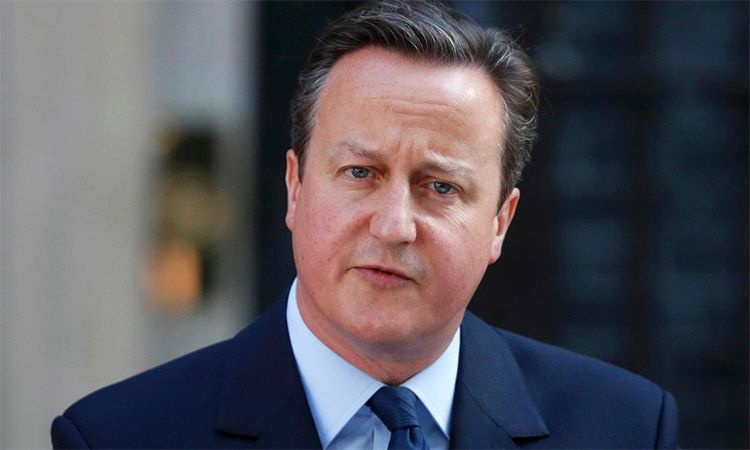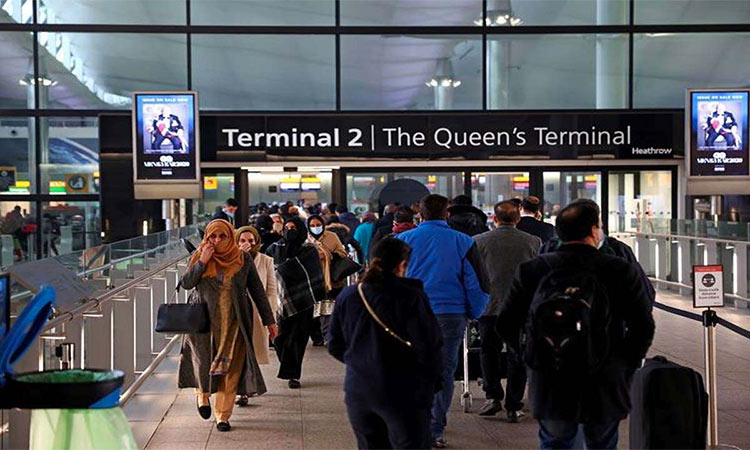Dickensian barge will not halt migrants’ plans


Suella Braverman
I’m not sure how much it has cost to charter and refit the Bibby Stockholm, a workers’ accommodation barge now converted into a floating migrant camp, but I think we should all be quite certain that it’s not much of an answer to the migrant crisis. Apart from being bizarre, like the exhausted residual product of some all-day brainstorming session at the Home Office when the air conditioning broke down, the fact is that it will house about one day’s worth of migrants crossing the English Channel — 500 people, all single adult males. They won’t be detained on the vessel, and there’ll be a free bus service to take them into town, where a mixed reception awaits them. What could possibly go wrong? It’s going to be moored at Portland and the people there don’t seem keen on the idea. That’s another Tory seat lost.
Given how long asylum claims take to process, it might just save some money compared to the cost of putting people up in a hotel somewhere, but it’s still useless as a solution to the problem. With the best will in the world, this modern-day version of a Dickensian prison hulk seems destined to become a squalid sort of place, but still won’t act as any kind of a deterrent for those prepared to risk drowning to get to Britain. It is, as in the fashionable phrase, a “performative” gesture; a great big maritime block of cells that Suella Braverman can point to as some kind of symbol that she is “controlling our borders”, complete with just that hint that the punitive sub-human conditions are all these “invaders” deserve until they can be deported to Rwanda — and will thus deter others from following them. Rwanda, by the way, like the barges, is not up to the job. In the words of Robert Jenrick, immigration minister and the Sunak administration’s sinister anti-Disney figure: “The number of individuals who can be relocated to Rwanda under the Migration and Economic Development Partnership is uncapped. Rwanda has made initial provision to receive 200 people and has plans to scale up capacity once flights begin.” “Uncapped” is a purely theoretical construct; it’s a pretty small camp in Kigali. Anyway, the courts haven’t decided if it is lawful yet.
Braverman’s so-called Illegal Migration Bill, the one where she has to admit on the face of the legislation that it’s unlawful under international treaty obligations, is set to gain royal assent and come into force in the coming days. A few brave stubborn souls in the House of Lords tried to stop the madness, but constitutional convention and late-night sittings proved too much for them. The brave resistance is over. At least they demonstrated why the new act will be doomed to failure. Like her ridiculous barge, and like every previous attempt at using the law to end the crisis, it will have no effect because it won’t act as a deterrent. If you are prepared to gamble your life to get to the UK, then you’ll put up with the primitive conditions the British will put you through when you get here.
Indeed, “deterrence” is a futile approach. Even if you did what the hard right suggest and tow the boats back to France, or use the Royal Navy to push them back (dangerous and also illegal under maritime conventions), they’d simply have another go and become determined to avoid detection — rather than, as now, present themselves to Border Force.
If the migrants and their smugglers ever actually believed that the UK would send every single genuine refugee and economic migrant alike to Rwanda, never to return — an unrealistic 50,000 a year or so — they’d simply change their tactics to avoid detection. They’d cross at night and land at secluded spots along the coast. They’d melt into the countryside with some money in their pocket, before making their way into the twilight economy and the world of unregulated work and accommodation, prey to criminals. We’d have even less control of our borders than now, and push many into crime. We wouldn’t know how many people were entering the UK — nor who they were.







